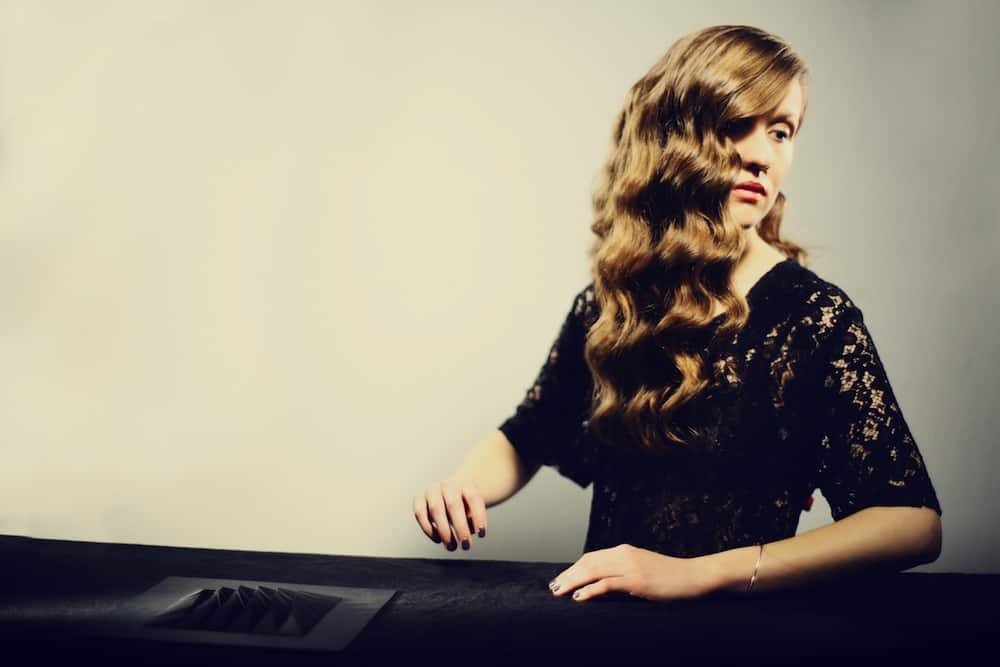Jessy Lanza’s relationship with music goes way back — both of her parents were musicians who put her through piano lessons, and she spent a few years in Montreal studying music academicly. While pursuing her Master’s in musicology, Lanza realized she would rather make her own music than study the music of others. Naturally, she returned home to Hamilton in order to immerse herself in doing what she’s pretty much been born to do. It wasn’t until another Hamilton native, Jeremy Greenspan of the Junior Boys, asked Lanza to collaborate with him that she began to have the makings of an album. Her debut album, Pull My Hair Back, was released under the boundary pushing record label Hyperdub. In this way she sits comfortably alongside other artists such as Burial, Laurel Halo, and Zomby, to name a few. Her first effort is an interesting one. At the first listen, one can quickly identify the album as r&b, but it’s hard to ignore the influence of dance music. Get to know Jessy Lanza before she takes on the Garrison in her first headlining show on November 2.
The Varsity: Did you know an album was going to come out of your collaboration with Jeremy Greenspan?
Jessay Lanza: When we first started working on stuff, we didn’t know what was going to happen — or if we make enough material to make up a full album. But eventually, we had enough tracks that sounded like they belonged together, to make up a full album. So it sort of just came together.
TV: How did you arrive at that distinct sound that pretty much defines your entire album?
JL: I don’t know where it came from. We had to get rid of a lot of tracks that we didn’t use for the record. So I think the fact that all those songs sound like they belong on a record together was a pretty solid decision. We had to get rid of a lot of stuff to make a very cohesive record.
TV: The Guardian recently included you as one of the future faces of this genre we now refer to as “experimental R&B.’” How do you see R&B evolving in the future?
JL: I don’t know, I have no idea… It’s just like every genre that’s being crossed with different things. In this case, I set out to make an r&b record, but I think because Jeremy also listens to a lot of dance music, it has those sorts of sounds on it as well.
TV: How did growing up in Hamilton have an impact on your relationship with music?
JL: Both of my parents were musicians and they’ve always encouraged me to do music in some way. I wasn’t sure if I was going to be a teacher or if I would do my own music. But yeah, I grew up in Hamilton and I still live there now.
TV: Were you able to find time to make music while you were working on your Bachelor’s and Master’s, or was it something you put off to the side in order to focus on your studies?
JL: While I was doing my Master’s, the whole time I was working on it, I stopped. I didn’t get to do anything creative really — just reading and writing, which is what your Master’s is all about. For my undergraduate degree, I did jazz piano, so that was very focused on learning other people’s music to studying jazz. I didn’t get to do much creatively at that time.
TV: Do your academic interests influence the creative process of making music, or is this something you keep separate from one another?
JL: I keep them pretty separate. I try not to let anything that I was doing mingle with what I do now. It’s a pretty separate chapter of my life.
TV: You ended up leaving your Master’s degree in order to pursue music. Have you ever had moments where you tried to convince yourself to stick it through, and just complete the Master’s despite not wanting to?
JL: No, definitely not. I mean, there were moments when I was like, I should go to teacher’s college and, not exactly get a real job, but a more reliable and consistent job. But everybody has moments like that. In order to be happy, you need to have a lot of passion for the subject. I hate to think of people who aren’t passionate doing it just for the sake of doing it. Nobody needs that kind of attitude.
TV: From what I’ve heard, Hamilton, despite it being a smaller city than Toronto or Montreal, is a great environment for the arts. What do you think Hamilton has that bigger cities lack?
JL: There’s a pretty tight arts community. The people here don’t really care about what’s going on outside of the city. The music scene is big enough to sustain itself. There are always more people supporting the local acts when the big names come to play. Usually I would go to see my friends play. There are a couple of shows that come through where my friends are opening for someone I was never familiar with before.
This interview has been edited for clarity and length.


